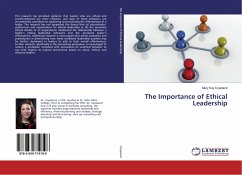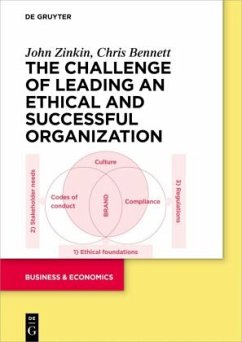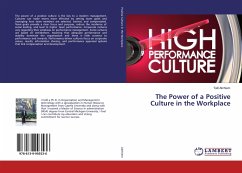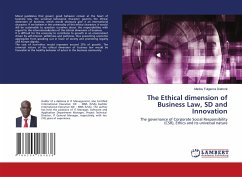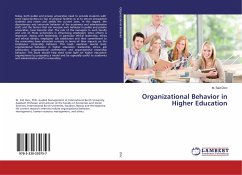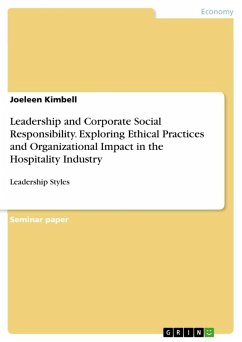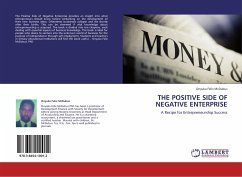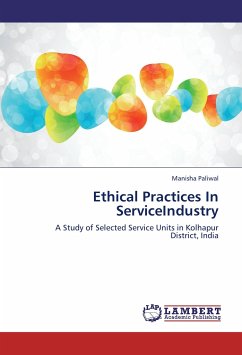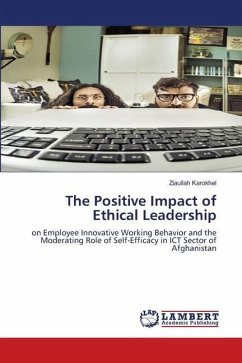
The Positive Impact of Ethical Leadership
on Employee Innovative Working Behavior and the Moderating Role of Self-Efficacy in ICT Sector of Afghanistan
Versandkostenfrei!
Versandfertig in 6-10 Tagen
29,99 €
inkl. MwSt.

PAYBACK Punkte
15 °P sammeln!
The current study aimed to find out how ethical leadership positively impacts on employee innovative working behavior; through the mechanism of moderating the role of self-efficacy. The study also investigated self-efficacy as a moderated role to strengthen the relationship between ethical leadership and innovative working behavior. Data were collected from 307 individuals working in the public ICT sector in Kabul Afghanistan. Data were analyzed by using descriptive statistics, reliability, correlation and regression analysis as well as tested the null hypothesis through SPSS. The findings sug...
The current study aimed to find out how ethical leadership positively impacts on employee innovative working behavior; through the mechanism of moderating the role of self-efficacy. The study also investigated self-efficacy as a moderated role to strengthen the relationship between ethical leadership and innovative working behavior. Data were collected from 307 individuals working in the public ICT sector in Kabul Afghanistan. Data were analyzed by using descriptive statistics, reliability, correlation and regression analysis as well as tested the null hypothesis through SPSS. The findings suggested that ethical leadership was positively and significantly associated with innovative working behavior. Furthermore, self-efficacy as a moderation strengthens the relationship of ethical leadership and innovative working behavior. The thesis is concluded by discussing the practical and theoretical implications along with the recommendations, limitations, and room for further research.





